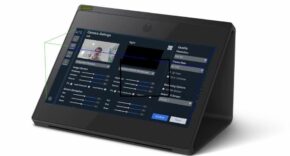In the medical world, apps for smartphones and tablets may get a bit of a bad rap. There is a growing concern, especially for the youth, that using these as a primary source of entertainment minimizes the amount of time that could be spent on physical activity.
While there is truth to this, a lot of technology companies are taking advantage of the popularity of these platforms to release apps that support health in a variety of different ways.
Here are some of the standout categories.
Fitness
For many casual smartphone users, the fitness segment is the epicenter of the health app boom. By providing functions that make it easier to monitor health on the go, these are the perfect match for the modern user.
For example, there are several different apps out there that can help count calories to ensure that you are planning meals properly or monitor your workout to make sure you are meeting your goals.
However, one other function that bears mentioning is community building. Apps like FitTogether make it easier for fitness trainers and gym owners to keep track of their clients, supply advice, as well as make it easier to connect for workouts in person. In addition, they work with popular fitness platforms like FitBit.
Stress Management
Even for people who aren’t dealing with acute mental health issues, there will be times when stress is difficult to manage. Some apps you can use to deal with these moments when you are away from home or in the midst of a difficult work day include Relax Melodies: Sleep Sounds.
This app makes it possible to create custom soundscapes with your phone to help you relax in times of stress. You can also program a guided meditation to help with issues like tinnitus or insomnia.
General Wellbeing
While the fitness segment is mainly built on charting certain markers to see how people are performing on their diets and workouts, this is only just the beginning of some of the potential that apps have in this regard.
For example, the Avibra app is built around the Arya AI advisor. What this basically does is take a look at some of your health and general habits and cover ways that you can improve through a variety of different quizzes and advice. In addition, the Avibra platform provides the user with the ability to invest in micro-life insurance policies, in case you are thinking about added coverage.
Practice Management/Growth
One group that we shouldn’t neglect talking about when it comes to apps in the medical world are the actual practitioners. While people are using apps to create healthier lifestyles for themselves, practices are using platforms like PatientPop to become more effective health providers.
For example, PatientPop takes a look at the various digital platforms that doctors may be using and offers guidance on how they can attract and inform more patients. Other facets include automating some front-office tasks as well as creating a platform to make it easier for existing patients to schedule appointments.
Healthcare and technology will always be intertwined, as advancements in the latter drive advancements in the former. Whether you are a healthcare professional in the field looking to better serve your patients or a person simply wanting to take a more active role in their own health, expect apps to continue to be an invaluable resource.












